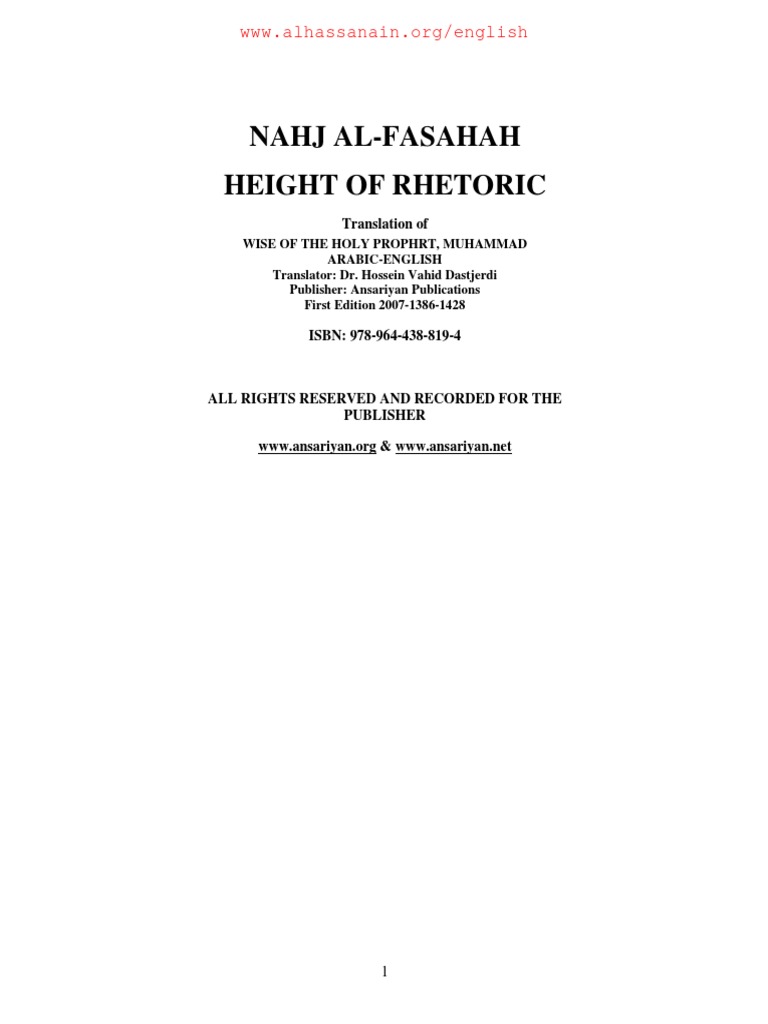Moreover, one observes that the linguistic finesse inherent in Nahj al-Fasahah is purposely crafted to stimulate cognitive resonance. The rhythmic patterns, assonance, and alliteration employed throughout the text serve not only to embellish the content but to reinforce its significance. This artistic technique creates a captivating reading experience that demands attention and encourages memorization, thus facilitating oral transmission—an essential aspect of the Islamic tradition. The interplay of sound and meaning forms a unique experiential dimension, heightening the awe experienced by scholars and laypersons alike when engaging with the text.
In addition to its linguistic prowess, Nahj al-Fasahah encapsulates deep theological insights that underscore the divine’s relationship with humanity. The text emphasizes the principles of Tawhid (Oneness of God) and the significance of prophethood, unveiling the spiritual contexts within which Shia beliefs flourish. Through its meditative discourses on faith and obedience, it elucidates how adherence to divine principles can fortify the believer’s inner sanctum. This exploration of spirituality reinforces the idea that understanding divinity is not a static pursuit but a dynamic journey—a concept deeply embedded within Shia theology.
Furthermore, the societal implications portrayed in Nahj al-Fasahah extend far beyond individual piety. Imam Ali advocates for a collective moral responsibility, urging communities to foster environments conducive to justice and compassion. The text imparts wisdom on governance and leadership, critiquing despotic authority and lauding righteous rule. This advocacy for ethical governance resonates powerfully in contemporary discussions surrounding political authority and civic engagement, showcasing the work’s applicability to modern challenges.
Tags
Share this on:
[addtoany]


